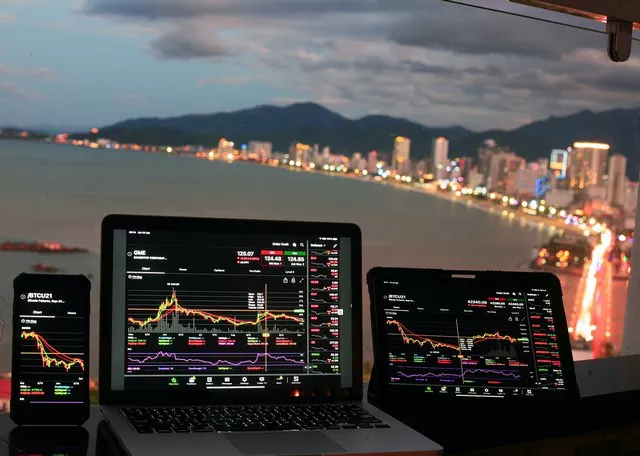In the world of finance, where decisions are often made in split seconds, real-time information holds immense value. The question “What are stock futures doing right now?” resonates deeply with traders and investors seeking to capitalize on up-to-the-minute market movements.
Understanding Stock Futures
Stock futures are derivative contracts that obligate traders to buy or sell an underlying stock or index at a predetermined price on a specified future date. They are an integral part of financial markets, providing a means for participants to speculate on the future direction of prices without actually owning the assets. Stock futures encompass a broad range of instruments, including single-stock futures and index futures, offering exposure to individual stocks or groups of stocks, respectively.
Importance of Real-Time Data in Stock Futures
Real-time data is the lifeblood of modern trading, and its significance in the realm of stock futures cannot be overstated. In an era where market conditions can change in an instant, having access to up-to-the-minute information is paramount for making informed decisions. Real-time data encompasses live price updates, bid and ask sizes, trading volumes, and market depth, all of which provide traders with a comprehensive view of current market sentiment and trends.
Real-Time Behavior of Stock Futures
Stock futures exhibit dynamic behavior in real time, influenced by a myriad of factors:
1. Economic Releases: The release of economic indicators, such as employment reports and GDP figures, can trigger rapid price movements in stock futures as traders adjust their positions based on new information.
2. Corporate Earnings: Earnings reports of companies included in stock indices can impact index futures as traders react to financial performance results.
3. Market Sentiment: Real-time news and market sentiment can lead to swift changes in stock futures prices as traders respond to developments both locally and globally.
4. Geopolitical Events: Geopolitical events, such as trade tensions and political upheavals, can cause volatility in stock futures markets, with prices reacting to shifts in international relations.
Tools for Tracking Stock Futures in Real Time
Several tools facilitate the real-time tracking of stock futures:
1. Trading Platforms: Online trading platforms offer real-time charts, live quotes, and order execution capabilities, enabling traders to monitor and trade stock futures seamlessly.
2. Financial News Services: Financial news websites and terminals provide live updates on market developments, offering insights into factors driving stock futures movements.
3. Market Data Feeds: Market data providers offer streaming feeds that include price quotes, trading volumes, and other relevant information, allowing traders to stay updated on market dynamics.
4. Mobile Apps: Mobile trading apps enable traders to access real-time data on their smartphones or tablets, providing flexibility and on-the-go market monitoring.
Strategies for Utilizing Real-Time Data
Traders employ various strategies to harness the power of real-time data in stock futures trading:
1. Scalping: Scalpers seek to profit from short-term price movements by entering and exiting positions quickly. Real-time data is crucial for identifying entry and exit points.
2. Day Trading: Day traders capitalize on intraday price fluctuations, leveraging real-time data to make informed decisions on trades executed within the same trading day.
3. Swing Trading: Swing traders hold positions over several days or weeks. Real-time data helps them identify trends and potential entry and exit points.
4. News Trading: Traders react to real-time news releases by executing trades based on the immediate impact of new information on stock futures prices.
Risk Management in Real Time
Effective risk management is imperative when utilizing real-time data in stock futures trading:
1. Setting Stop-Loss Orders: Traders should set stop-loss orders to limit potential losses in case the market moves against their positions unexpectedly.
2. Monitoring Leverage: Traders should avoid excessive leverage, as real-time price fluctuations can lead to significant gains as well as losses.
3. Avoiding Impulsiveness: Real-time data can trigger impulsive decisions. Traders should adhere to well-defined trading plans and avoid making emotional trades.
4. Diversification: Diversifying across different assets can mitigate risk exposure and help manage the impact of unexpected market movements.
Conclusion
In the fast-paced world of finance, staying ahead of market trends requires real-time insights. The question “What are stock futures doing right now?” is not just a query but a call to action for traders and investors seeking to navigate the complexities of modern markets. Real-time data empowers them with the tools needed to make informed decisions, seize opportunities, and manage risk effectively. By integrating real-time data with sound trading strategies and disciplined risk management, market participants can embrace the dynamic nature of stock futures trading, positioning themselves for success in a landscape that demands constant vigilance.

